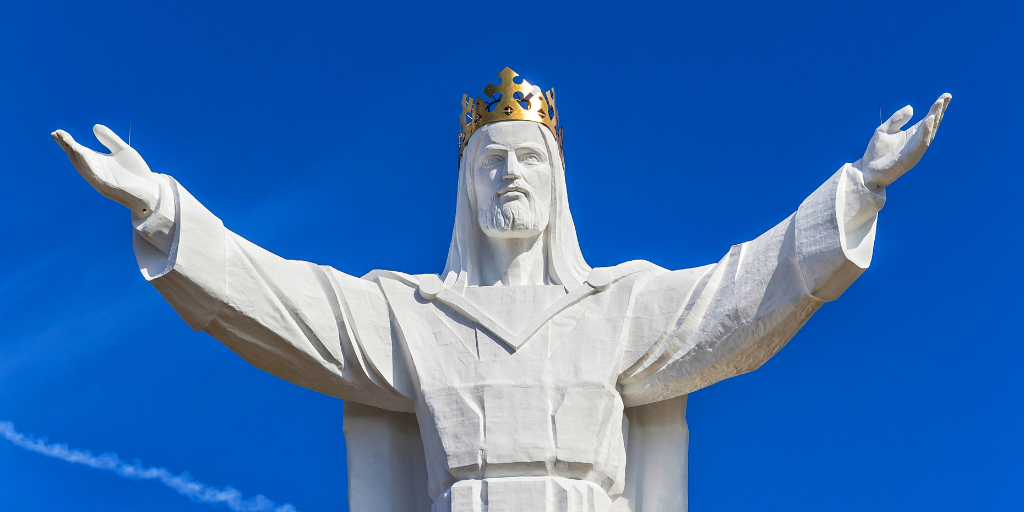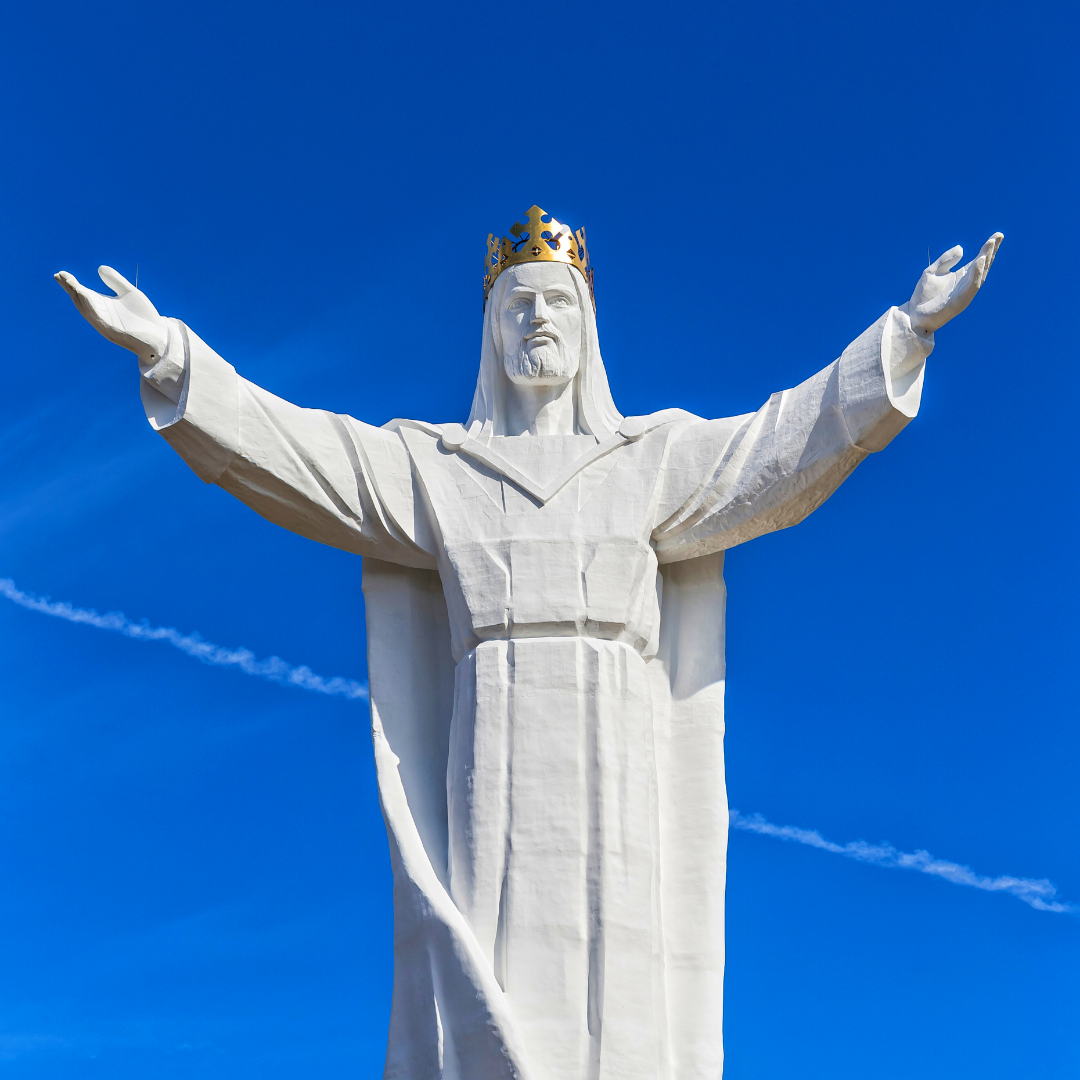
Julie Storr shares a reflection on the Preface for the Mass for the Solemnity of Our Lord Jesus Christ, King of the Universe.
This Sunday we begin the last week of Ordinary Time as we celebrate the Solemnity of Christ the King. For today’s lectio, we will take a look at the Preface of this week’s liturgy. The Preface is the beginning of the Eucharistic Prayer.
The prayer begins with a dialogue between the priest and the people: “Lift up your hearts,” “We lift them up to the Lord.” The priest takes back the last words of the people and directs the prayer to the Father: “It is truly right and just …”
The prayer for this week is longer than some, but there are parts of it that deserve some reflection, so let us Lectio the Liturgy:
It is truly right and just, our duty and our salvation, always and everywhere to give you thanks, Lord, holy Father, almighty and eternal God.
For you anointed your Only Begotten Son, our Lord Jesus Christ, with the oil of gladness as eternal Priest and King of all creation, so that, by offering himself on the altar of the Cross as a spotless sacrifice to bring us peace, he might accomplish the mysteries of human redemption and, making all created things subject to his rule, he might present to the immensity of your majesty an eternal and universal kingdom, a kingdom of truth and life, a kingdom of holiness and grace, a kingdom of justice, love and peace.
The first part of the sentence, For you anointed your Only Begotten Son, our Lord Jesus Christ, with the oil of gladness as eternal Priest and King of all creation, sent me searching for the meaning of the oil of gladness.
St. Cyril, in a teaching on Confirmation, writes that Jesus was not anointed by human hands or with ordinary oil. The Father himself anointed him with the Holy Spirit. Isaiah prophesied, “The Spirit of the Lord is upon me, because he has anointed me.” (Isaiah 61:1) The book of Acts 10:38, also tells us, “God anointed Jesus of Nazareth with the Holy Spirit and power.” St. Cyril writes that the Holy Spirit is called the oil of gladness because He is the source of spiritual joy.
Use that lens, the lens of spiritual joy, as we read through the next part of the prayer: so that, by offering himself on the altar of the Cross as a spotless sacrifice to bring us peace, he might accomplish the mysteries of human redemption…
The conjunction “so that” indicates that Jesus’ offering would not have been possible without that anointing. With the joy of the Holy Spirit, Jesus offered himself as a sacrifice to accomplish our redemption. Redemption. He bought us back. He paid the ransom. At the end of this life, when we stand before Him, we will see in His hands, feet, and side, the price he paid for us.
That price, His scars, are what makes all things subject to His rule. He didn’t win His position in combat; He won it with His obedience, love, and joy. His victory is our entry into His Kingdom.
In that victory, making all created things subject to his rule, He, Jesus, might present to the immensity of the Father’s majesty an eternal and universal kingdom.
Think first about the immensity of the majesty of God. Without help from the Holy Spirit, it’s probably impossible to imagine God from creation, to parting the Red Sea, to the prophets, to the birth of Jesus. This same God is the one we receive when we celebrate the Sacrament of Holy Eucharist. This great God lives inside each of us.
What kind of a kingdom is fitting for such a God? A kingdom that is eternal and universal, a kingdom of truth and life, of holiness and grace, of justice, love, and peace. In the Latin form of the prayer, the word for justice is iustitiae; it means righteousness, uprightness.
Look around and look inside because the Kingdom of God is at hand. It is here today, but sometimes it seems that we often forget that while we have a physical home, we have a spiritual home at the same time.
The last part of the Preface leads us to praise. Since it is truly right and just to always and everywhere give Him thanks, for he has done all these marvelous things, therefore we join with the angels in praise.
To be exact, this week we will join all the hosts of heaven, and the prayer specifically names five of the nine Choirs of Angels we are singing with: Angels, Archangels, Thrones, Dominions, and Powers. No one on earth can even imagine the sound of our voices joining theirs, but to the heavenly realm, it must be heavenly!
Lectio the Liturgy with this week’s Collect.

Copyright 2022 Julie Storr
Images: Canva
About the Author

Julie Storr
Julie Storr surprised herself when she went from “never ever going to be Catholic” to a lover of the lectionary. Her thirst for the Faith is never quenched and she is always surprised at the depth of the relationship with Christ that one can find in the Catholic Church. She and her husband live in Pocahontas, Iowa. Visit her website at LectioTheLiturgy.com.


.png?width=1806&height=731&name=CatholicMom_hcfm_logo1_pos_871c_2728c%20(002).png)
Comments